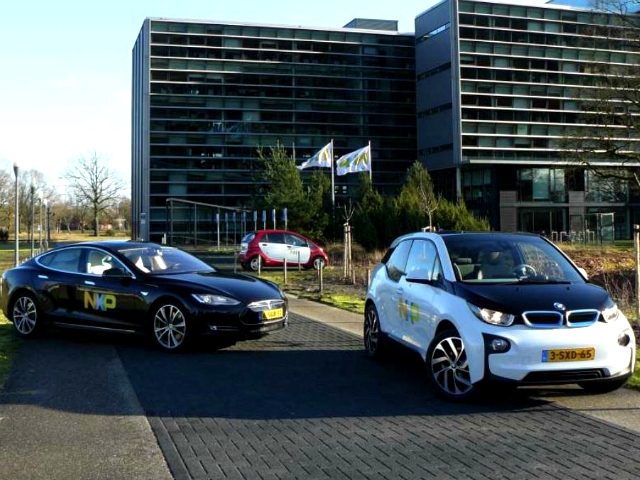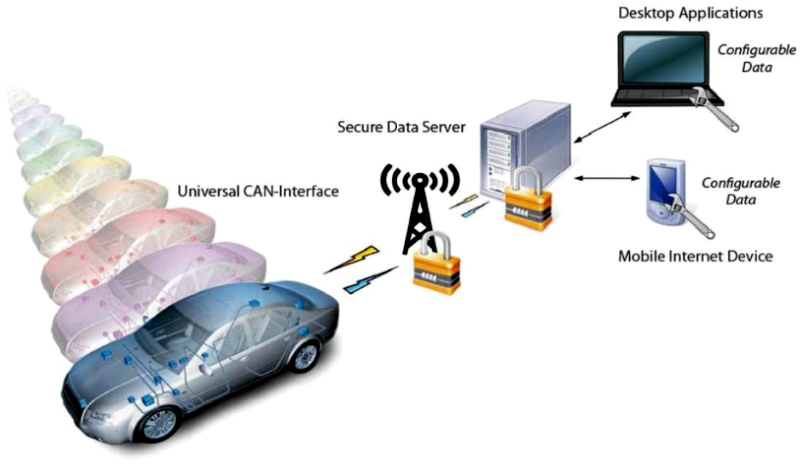Connected cars will help to make our roads safer

As a young Londoner, I'm not much of a driver, but boy do I see some congestion. Our capital's streets are bursting at the seams with cars, buses, bikes and trucks, and the majority are completely unconnected to each other.
So it was with interest that I attended NXP's Innovation Day in Eindhoven, Holland, to witness a range of technologies developed by the semiconductor company, including the latest automotive innovations. Falling under the ever-expanding category that is the Internet of Things, the connected car is seen by many to be the future of sustainable transport.
This is not to say though that you'll be seeing a Johnny Cab pull up at your door tomorrow. Maurice Geraets, senior director business development automotive, NXP, was keen to make this clear. The great shift into autonomous driving lies years ahead, he insisted. In the meantime we shall see a period where assisted driving will coexist with traditional vehicles. Bringing in-car data real time to the cloud is hoped to improve traffic safety and reduce congestion and emissions.
Safety
The safety benefits of cars that effectively talk to each other are easy to imagine. Whereas the traditional driver relies on human senses to avoid collision, the assisted driver is aided by the vehicle's connection to others around it. The connected car can warn all those behind it, should it be involved in an accident, thus preventing a pile-up. In January 2013, both NXP and Cisco invested in Cohda Wireless to this end, in a move to advance automotive connectivity.
Mobility
Likewise, removing the human element presents opportunities for congestion reduction and maximized mobility. If in 2030, as the World Health Organization predicts, six out of every ten people will live in urban areas, then more efficient road usage will be welcome to many-a city. "Car-to-X communications," as NXP has so termed them, will provide traffic jam management and rerouting options that will streamline our cities' streets, and hopefully help cope with projected population influxes.
Human error
A car is more than just a machine to many though. The tangibility of being in control of one's vehicle is a beautiful thing that some drivers will cling to. Therefore one can foresee a potential conflict on the country's roads, between the connected and the disconnected, and this includes cyclists and pedestrians. I posed the issue to Maurice.
"The highly automated vehicles -- not to call it fully autonomous yet -- will have to anticipate what is happening with the other traffic," he said.
"On pedestrians we have a project... which is called VRUITS (vulnerable road user intelligent transport systems) to really see how we can also incorporate the technology into the pedestrians, because the vulnerable road users are a quite important role in road safety and road faculties".
"You could imagine that you have, for example, cameras on dangerous intersections that monitor what's happening and do warn cars that are approaching, in the beginning not even with a specific instance, but just with the warning: 'Ten children are playing around here.' Then the driver can take over the control of his highly automated vehicle more so that he can carefully steer his car through that situation".
Clearly, working out how to deal with us unpredictable human road users is still in the development stage.

NXP faces competition from Google, whose driverless cars can sometimes be seen on the roads of California and Nevada. The search giant's vehicles have now logged 700,000 miles of accident-free autonomous driving, and the cars can react to cyclists, sensing when they are turning left or right or approaching from behind. Hesitant to focus on full autonomy yet, NXP has aligned itself with market leaders such as Audi to develop interfaces for the connected car.
Published under license from ITProPortal.com, a Net Communities Ltd Publication. All rights reserved.